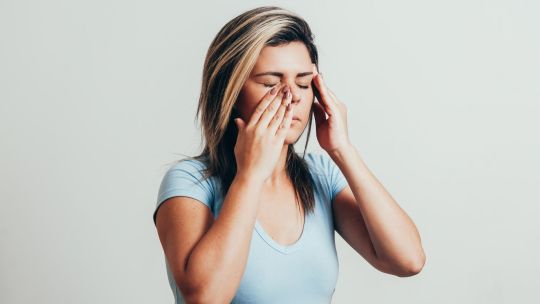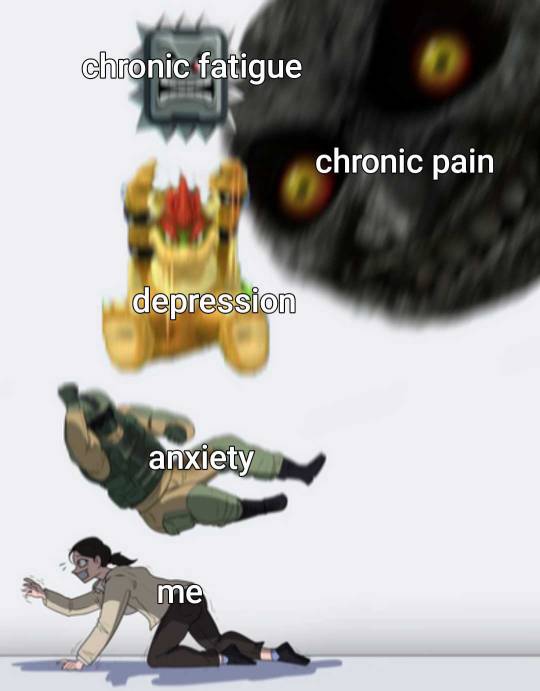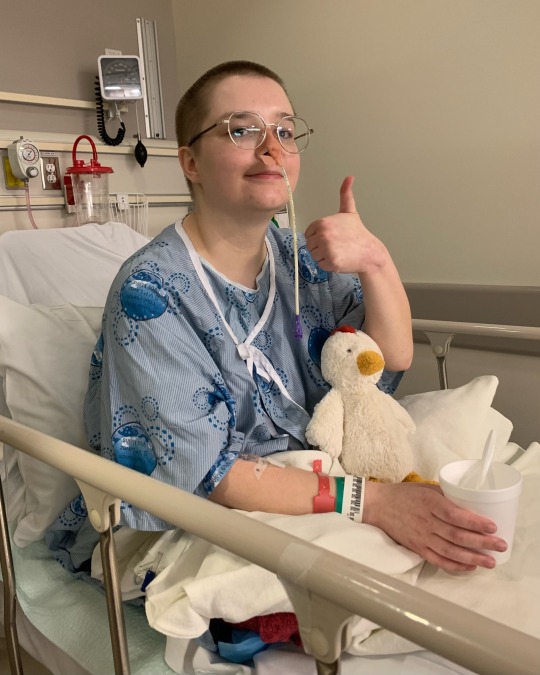#complex chronic illness
Text
Risk Assessment: Should You Go to the Doctor?
Add one point for each statement that applies to you.
You are a woman.
You are not white.
You are transgender, intersex, or gender-nonconforming.
You are queer.
You are under the age of 25.
You are over the age of 60.
You are overweight (whatever that means today).
You have one or more psychiatric conditions.
You have one or more physical disabilities.
You have one or more chronic health conditions.
You have a neurological difference or disability that affects communication (i.e. autism).
You have more than one of the above (7-11).
Your appearance is in any way disheveled or “unprofessional.”
Your appearance is too professional.
You are visibly distressed about your symptoms.
You are not visibly distressed about your symptoms.
You do not speak English.
English is not your first language, or you speak English with an accent.
You are on Medicaid.
You are uninsured.
You are poor or working class.
You are addicted to drugs or have a history of drug use.
This is not your first time this year seeking medical attention for this issue.
This is more than your fifth time this year seeking medical attention for this issue.
You have lost count of how many times you have sought medical attention for this issue.
It will be a challenge to condense your medical history and current symptoms into a narrative can fit within a standard-length clinical visit.
It will be a such a challenge that you will probably leave some things out.
It will be such a challenge that you plan to skip it entirely focus only on your most immediately concerning symptom(s).
0 points: Low risk. Positive outcome not guaranteed, but you probably won’t be accused of malingering or 5150’d.
1 - 5 points: Some risk. Be prepared to be asked if you are “stressed.” If you aren’t already on anti-depressants or anxiolytic medication, you may be offered some.
6 - 10 points: Moderate risk. Your concerns may be blamed on your existing medical conditions, disabilities, body size, or lifestyle. Be prepared to be interrupted.
11 - 20 points: Elevated risk. You may be accused of exaggerating, doctor shopping, or drug seeking. Alternatively, you may be treated like an idiot. Speak carefully: appear informed, but not better informed than the clinician. Appear respectable and put-together, but not so much so that they doubt that you’re really in pain.
20+ points: High risk. Prepare yourself to be treated like a criminal or dismissed wholesale. Consider taking notes. Consider recording the appointment, if you’re in a single-party consent state. Walk a razor-thin line between appearing sympathetic and firmly advocating for yourself. Keep your immediate priority in the crosshairs. Don’t let your guard down, but don’t get hysterical. Lower your expectations. Firm up your resolve. Bring tissues in case you need to cry after (but for the love of god, don’t cry during). Good luck.
#this is a creative writing exercise#not medical advice#THIS IS NOT MEDICAL ADVICE#do not listen to me your friendly local iatrophobe#chronic illness#complex chronic illness#experiments
3 notes
·
View notes
Text
Can we please for the love of god stop telling teenagers they’re too young to have aches and pains. Can we please stop being dismissive about these things. Fakeclaiming is disgusting period, but it is exponentially harmful to youth. Just because you didn’t start hurting until your 20s or 30s or 40s doesn’t mean every teenager complaining of chronic pain must be lying. I learned the hard way that if kids are invalidated enough about this, they will just learn to accept constant pain as a fact of life. And then they will need surgery they can’t afford in ten years bc it turns out constant pain is NOT a fact of life. At any age.
p.s. same goes for mental health
#chronic pain#chronic illness#medical trauma#tw fakeclaiming#fake claiming#anti fakeclaiming#childhood trauma#complex trauma#physical disability#disability advocacy
10K notes
·
View notes
Text
The horrors are unpleasant and unending tonight, so why, pray, THE HELL, won’t my brain let me sleep through them. No motivation, no spoons, no mad determination to do something, just me and my crippling secondary depression sat opposite each other like awkward spouse and father-in-law left alone in the living room together.
#spoonie#spoonie artist#dysautonomia#depression#chronic disability#complex chronic illness#the horrors#mecfs#trauma brain
1 note
·
View note
Text
Detox Binders: Chronic Illness Support for a Better Life

What are chronic illnesses
Are you dealing with a chronic illness? Chronic illnesses are draining and they make it difficult to lead a normal life. And no matter how much you try, there's always something that can go wrong. The most frustrating part of living with a complex chronic illness is feeling like you have no control. But the good news is there are tools and strategies that can help you reduce your symptoms and feel more in control.
Symptoms of chronic illness
We all know that chronic illness, especially with its accompanying symptoms, can be exhausting. We also know that toxic overload can cause an array of symptoms, including pain, fatigue, and cognitive issues. A toxin binder supplements that binds to toxins in your body and helps clear them out!
Toxin Binder Supplement
Toxins are an overlooked cause of chronic illness. Complex Chronic illness is one of the leading causes of death and poor quality of life, and is also a major drain on our health care system as chronic patients often requires more frequent and longer hospital stays due to the severity of their disease. Toxin binders are supplements that help the body get rid of toxins that can cause chronic disease. They work by binding to toxins and keeping them from being absorbed into the bloodstream, where they would otherwise cause damage.
Bottom Line:
So, if you are looking for a toxin binder supplement that will help you get your life back, we understand how difficult it is to find a product that works for you. Toxin removal products can help cleanse and purify your blood, thus helping to improve your overall health. They may also decrease symptoms of chronic illness, such as fatigue, pain, numbness or tingling, and the number of flare-ups you experience.
0 notes
Text

Oof me rn
#my meme#spoonie#spoonie memes#chronic illness#chronic pain#chronically ill#crps#complex regional pain syndrome
188 notes
·
View notes
Text


“None of us know for sure what’s out there. That’s why we keep looking. Keep the faith. Travel hopefully. The universe will surprise you constantly.” - The Doctor
I don’t talk about it very often on this blog but I have a rare neuropathic condition called Complex Regional Pain Syndrome. It causes me constant, debilitating full-body pain along with a host of other symptoms that affect every aspect of my life.
I got sick when I was 9 years old. I am 25 now and over the years my condition has deteriorated. I’ve developed several comorbidities which in combination have become life threatening.
In 2021 I was admitted to hospice. I was only able to make it through with the support of my friends who found new treatment options and set up a fundraiser for me. I’m beginning another round of treatment soon and with your help I will be able to afford the care I need during this lengthy recovery process.
These last few years have been the hardest of my life, but also the most hopeful. This disease has taken so much from me but I refuse to give up. I know I have a future, I just need help getting there.
You can learn more about my story here:
TV Interview // Radio Interview
You can help by donating, reblogging this post and sharing my fundraiser. Every bit helps!!!
🌟 LINK TO MY FUNDRAISER! 🌟
#fundraising#complex regional pain syndrome#chronic pain#crowdfunding#mutual aid#chronic illness#gofundme#crps#signal boost
161 notes
·
View notes
Text
Sometimes things aren't easily done because we need to build up a momentum first. If you can do things consistently, you don't notice this because you almost always have that momentum. If you've been getting things done every day, it feels natural to be able to continue, or to go on and to more complicated projects and jobs.
However, when you've been lying in your bed for the past week/month, it feels incredibly difficult to imagine that you could just get up and start doing complicated or difficult tasks. Your confidence is low, your track record is hurting you, you feel it's a miracle if you manage to even get up and grab some food from the fridge.
But if one day you manage to feed yourself, and maybe even wash a dish, or do some sort of a chore, and the next day you manage to clean a little, or make an actual meal, and then the next you're doing your laundry and have fresh sheets on your bed, then you have gained some momentum, then you could actually go and socialize, or do a non-chore task. Doing multiple simple tasks ensures confidence to do a bigger one, granted that you didn't waste all of your energy doing the simple chores.
This why sometimes doing things related to a complicated project, without doing the major things, can help, because just by doing simpler tasks you're gathering confidence and momentum, you're building up to a place where it no longer feels so unbelievable that you could do something complicated that takes skill and brainpower.
And sometimes, when you're chronically ill, you start building up your momentum and then your state worsens and you end up back in bed, your momentum interrupted and your confidence back at the bottom. It's difficult to get to a place where you have momentum, if you have no energy to build it. Nobody could just get out of bed and immediately preform miracles, we need to be able to do simple things first, small and easy tasks first, until we're ready to try for something more scary. Doing things makes doing other things less scary, and more possible, but if you're constantly interrupted, it's a struggle to convince yourself that one day you'll be able to do it.
#momentum#executive dysfunction#chronic illness#chronic fatigue#chronic pain#doing tasks#being stopped from doing more complex tasks#because even the simplest drain you#and then you can't build up to anything anymore
365 notes
·
View notes
Text

#jokes#psychology#coping mechanism#trauma coping#trauma humor#just cptsd things#living with cptsd#cptsd recovery#ptsd recovery#complex ptsd#ptsd#actually ptsd#coping skills#mental illness#mental health#laughter#spoonie#chronic illness#chronically ill#chronic disease#grounding techniques#grounding
67 notes
·
View notes
Text
half baked dissertation thought of the day: the epistemic challenges posed by complex chronic illnesses are very similar to those posed by climate change. complex chronic illnesses often involve dynamic, interrelating systems (nervous, immune, endocrine) that both traverse the whole body and mediate the body-environment interface. likewise climate change involves dynamic, interrelating global patterns of weather, movement of pollutants, etc. both are so fundamentally multivariable that they're not always compatible w/ study by the much-fetishized randomized controlled trial. this does not mean (as advocates for both have been pointing out repeatedly for decades ad nauseum) that they're somehow fundamentally mysterious or unknowable - but that we have to learn to account for and reason with a much wider range of evidence, *and* that we have to think about intervention in broad, systemic, and processual terms rather than seeking quick techno-fixes to paste over existing systems.
8 notes
·
View notes
Text
Acceptance feels like giving up.
Let me be clear, it's not.
Feelings aren't always clear, though. And I will admit that even though I've hit my stage of; this is how it is, I have to cope. I still struggle with it internally.
Part of that is because of what other people tell me.
"I hope you recover soon."
"I hope they find a cure for your condition."
"You're too young to be this sick and disabled."
"Of course you can work, you just have to find something that works for you."
"You've been sick for 3 YEARS??? Fuck I would rather die than to have my life be halted like that."
And it sucks. It sucks so fucking much because there is no cure. There is only coping. I've done the therapies, I've fought to stay alive, I've fought to get better. And although things improved, I never got better to a point where I could fully continue my life.
The acceptance of that has set in.
But the mourning for the life I wanted to have hasn't stopped. And with everything I've been (wrongfully) taught, it feels like I've given up.
#actually disabled#actually mentally ill#actually dissociative#actually ptsd#ptsd#chronic pain#chronic fatigue#chronic illness#chronically ill#fibromyalgia#functional neurological disorder#complex pain syndrome#complex trauma#healing journey#ben says stuff
162 notes
·
View notes
Text
Gentle reminder that your disability and/or chronic illness struggles are valid, even if others have it worse. It’s not like there’s one definitive Most Disabled Person In The World and they’re the only one entitled to accommodations or reactive emotions. That’s not how it works <3
#physical disability#chronic illness#neurological disability#adhd autistic#audhd#neurodiversity#did osdd#late diagnosed autistic#complex trauma#invisible disability#invisible illness#intersectionality#comorbidities#comorbid conditions#disability representation#disability accommodations#disability advocacy#chronic pain#chronic fatigue#chronically ill#disabled representation#disabled rant#disability things#chronic illness things
2K notes
·
View notes
Text
I wake up with less than 0 energy, I feel like I'm literally dying every day but still I have to live to survive. The trauma I've been repressing for years is finally catching up to me physically.
#chronic pain#fibromyalgia#actually mentally ill#chronic illness#aroace agender#spoonie#chronic fatigue#disability#actually disabled#chronic disability#actually cptsd#complex ptsd#actually neglected#childhood neglect#actually traumatized#tw abuse#tw death
98 notes
·
View notes
Text
for the love of trauma survivors, please do not misuse language to describe abuse and trauma responses - especially not for jokes.
gaslighting isn't simply lying. it's behavior employed by an abuser to make their victim question their reality and sanity. and grooming is behavior that aims to warp a victim's perception of reality in favor of the predator - ultimately to normalize abuse.
flashbacks and repressed memories aren't simply remembering. flashbacks involve re-experiencing trauma through memories, thoughts, and emotions. repressed memories involve trauma so severe, the only way their brain could cope was to block it out.
being triggered isn't just being angry or uncomfortable. it's an exhausting and near uncontrollable nervous system response - it can be about trauma, but it can also be about symptoms of other things too. it can involve an array of distressing actions, thoughts, and emotions.
these are not fancy words for fairly mundane things. and fucking none of them are for you to make a joke of.
#softspoonie#disabled#disability#chronic illness#mental illness#mentally ill#chronically ill#mental health#trauma#trauma survivor#trauma victim#actually traumatized#traumatized#trauma recovery#ptsd#complex ptsd#cptsd#survivor#abuse#abuse victim#gaslighting#grooming#repressed memories#flashback#flashbacks
969 notes
·
View notes
Text

now i’m suffering, and you couldn’t care less
#my art#tw implied abuse#okay to rb#trauma vent#vent art#actually traumatized#actuallyabused#actually dissociative#actually borderline#childhood trauma#child neglect#complex trauma#mentally ill#traumatic childhood#traumacore#ventcore#chronic exhaustion#cptsd art
703 notes
·
View notes
Text
One of the hardest things for me about being disabled that I don’t see many people talking about is the guilt of not being able to do the kind of activism I want to do. I try to educate myself as much as possible when I have the focus/energy to read up on things but no matter how much I learn and how many petitions I sign and how many creators I try to support it feels so small.
I want to do so much more for the causes I care about, I don’t want to be complicit in the things going on in the world when I see calls to action by people who need help, to be at protests and events lifting up peoples voices who need it as best I can. I have so much admiration for the people who stick out unbearable circumstances without any choice or those who choose to show up for months until change happens but I don’t know how to do that.
I feel guilty for not helping as much as I want to and not being able to donate either. It feels like I’m at the same level as the people who say things are awful and then ignore it and turn away and do nothing.
But I am fatigued, overstimulated, in pain, and barely able to keep up with my life. My job, self care, chores etc. are already too much to handle to the point where my therapist has even told me it would be a bad idea to try to volunteer because I just don’t have the energy.
There’s only so much I can sacrifice without destroying myself in the process but I feel like I owe it to the people who are being hurt to suffer with them, I’m not better than them, what excuse do I have to protect myself when they don’t have that ability themselves? What excuse do I have not to help?
I don’t know what the point of this post really is, just that it’s hard and if anyone else experiences this I’m sorry.
#actually autistic#autistic experiences#late diagnosed autistic#invisible disability#disability#complex ptsd#physical disability#physically disabled#ambulatory wheelchair user#generalized anxiety disorder#chronically ill#chronic pain#fibromyalgia#me cfs#chronic fаtiguе ѕуndrоmе#myalgic encephalomyelitis#activism#activist#guilt
42 notes
·
View notes
Text
I'm sick of going through the same cycle again and again and again and again and again and again and
26 notes
·
View notes